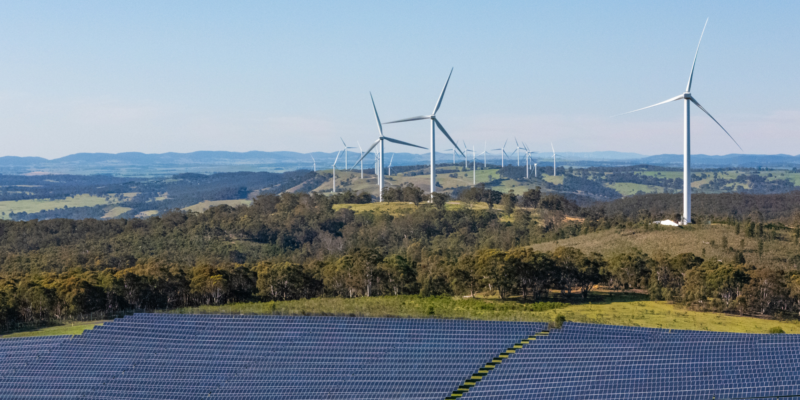COP29 took place last month in Baku, Azerbaijan, and countries around the world are now reflecting on how to achieve their net zero targets. At Gillespie Macandrew, we are seeing an increase in Landowners and Developers considering co-location as a solution to maximising renewable energy opportunities whilst aligning with goals for a sustainable energy transition.
What is co-location?
Legally, there is no definition of co-location and whether something is a co-location project is a question of fact and depends on the details of the specific project. The term “co-location” is not a settled term and there are other ways to describe this. For example, the Scottish Government Energy Consents Unit refers to such applications as “hybrid” applications.
Broadly speaking, the term co-location is used to describe the combination of two or more renewable energy generation and/or storage technologies, for example wind turbines and battery storage, physically located together and generally sharing some infrastructure. It can also relate to two or more technologies sharing a single grid connection, making the overall energy system more robust and economically viable.
What are the benefits of co-location?
There are several reasons why co-location might be appropriate for a site.
Co-location allows parties to maximise the potential of the land that is available, both in terms of maximising the energy that can be produced and the commercial benefit that can be obtained. This applies both in new developments and in developments that already exist, where a new technology can be added – for example, the re-powering of existing technology when approaching the end of its lifespan by adding a new technology into the mix. As competition for prime locations intensifies, there is a growing advantage in utilising sites that can accommodate multiple technologies. It is becoming increasingly important to use these sites as efficiently as possible to maximise the use of available space, which is particularly important in areas where land is scarce or expensive. It can also help to reduce costs associated with building and maintaining multiple sites, as well as reducing the environmental impact of these operations.
Other co-location benefits of renewable energy technologies include:
- Efficient use of natural resources at one site, for example, wind and solar and avoiding loss due to constrained grid capacity, such as, adding a type of storage, like battery storage.
- Land agreements can be negotiated together, potentially saving on time and agent and legal costs for both sides compared to if the projects were developed separately, and generally streamlining the process.
- Infrastructure can be shared between the technologies, such as grid connection and access routes, which can help to minimise impact on the site and surrounding land when compared to separate projects.
What should you consider when looking at co-location developments?
Consideration should be given to the following:
- Is this a new proposed renewable energy development? If the answer is yes, this will require a full set of legal agreements likely an option and lease for each relevant landowner drafted to include rights for all relevant technologies.
- Is this a re-powering of an existing technology and adding on an additional technology? If so, will the re-powering be agreed separately from the new technology? There may be strategic reasons to frame the repowering as an extension of the existing agreement rather than a new project.
- Will there be a single developer or are the technologies being developed by multiple developers?
- Developers must assess whether there is potential to maximise the use of the land. Are there multiple opportunities that can be applied?
- Is this an “all or nothing” development, for example, both technologies must proceed or there is no development at all.
- Will one technology be the primary technology with the other secondary, the secondary one being useful to optimise the project but not critical?
- Will a combined consent or planning permission be sought and will there be a single build out or will it be phased?
The answers to the above points will inform you as to which legal agreements are required and what legal and practical considerations need to be factored in. It’s important to ask whether everything will be dealt with in a single agreement, or whether there will be a single or multiple rent(s) and sets of developer obligations and how rights will interact with each other.
The future of co-location
Whilst there are several positives to co-location, it’s not without its own unique set of complexities. The trend toward hybrid and co-location projects is expected to accelerate and the continuous advancements in technology will offer more benefits to landowners and developers, in turn maximising the use of the land available while contributing towards net zero targets.
If you would like to find out more about co-location and how our team can support you (whether landowner or developer), please contact our team.



